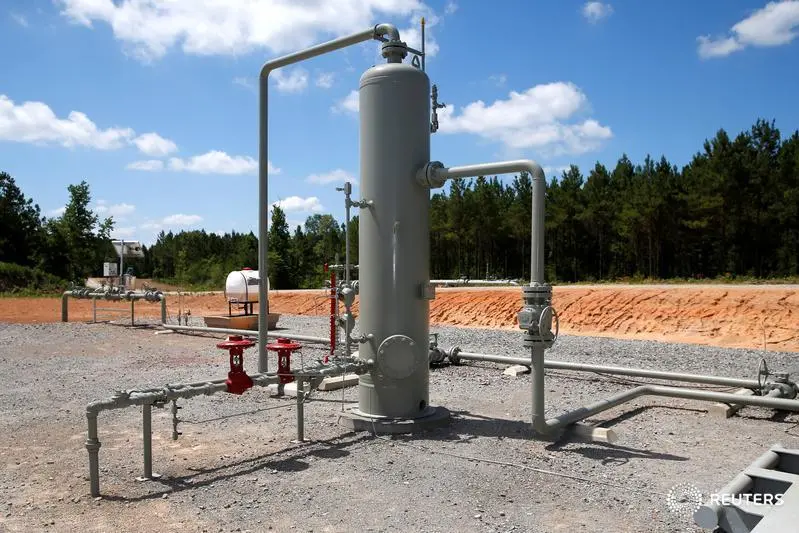PHOTO
U.S. natural gas futures slipped from a 31-month high on Thursday on a bigger than expected storage build last week.
That decline came despite forecasts for hotter weather and higher air conditioning demand next week than previously expected.
The U.S. Energy Information Administration (EIA) said U.S. utilities added 49 billion cubic feet (bcf) of gas into storage during the week ended July 16.
That was more than the 44-bcf build analysts forecast in a Reuters poll and compares with an increase of 38 bcf in the same week last year and a five-year (2016-2020) average increase of 36 bcf.
Last week's injection boosted stockpiles to 2.678 trillion cubic feet (tcf), or 6.2% below the five-year average of 2.854 tcf for this time of year.
Front-month gas futures fell 4.1 cents, or 1.0%, to $3.918 per million British thermal units (mmBtu) at 10:35 a.m. EDT (1435 GMT). On Wednesday, the contract closed at its highest since December 2018 for a third day in a row.
Before EIA released the storage report, the front-month was down 0.7%.
Data provider Refinitiv said U.S. output in the Lower 48 states slipped to 91.5 billion cubic feet per day (bcfd) so far in July, due mostly to pipeline problems in West Virginia earlier in the month. That compares with an average of 92.2 bcfd in June and an all-time high of 95.4 bcfd in November 2019.
Refinitiv projected average gas demand, including exports, would rise from 92.4 bcfd this week to 95.3 bcfd next week as the weather turns seasonally hotter. The forecast for next week was higher than Refinitiv predicted on Wednesday on expectations power generators will burn more gas to meet rising air conditioning demand.
The amount of gas flowing to U.S. liquefied natural gas (LNG) export plants has averaged 10.8 bcfd so far in July, up from 10.1 bcfd in June but still below the record 11.5 bcfd in April.
With European and Asian gas trading near $12 and $14 per mmBtu, respectively, analysts said buyers around the world would keep purchasing all the LNG the United States can produce.
(Reporting by Scott DiSavino, Editing by William Maclean) ((scott.disavino@thomsonreuters.com; +1 332 219 1922; Reuters Messaging: scott.disavino.thomsonreuters.com@reuters.net))





















